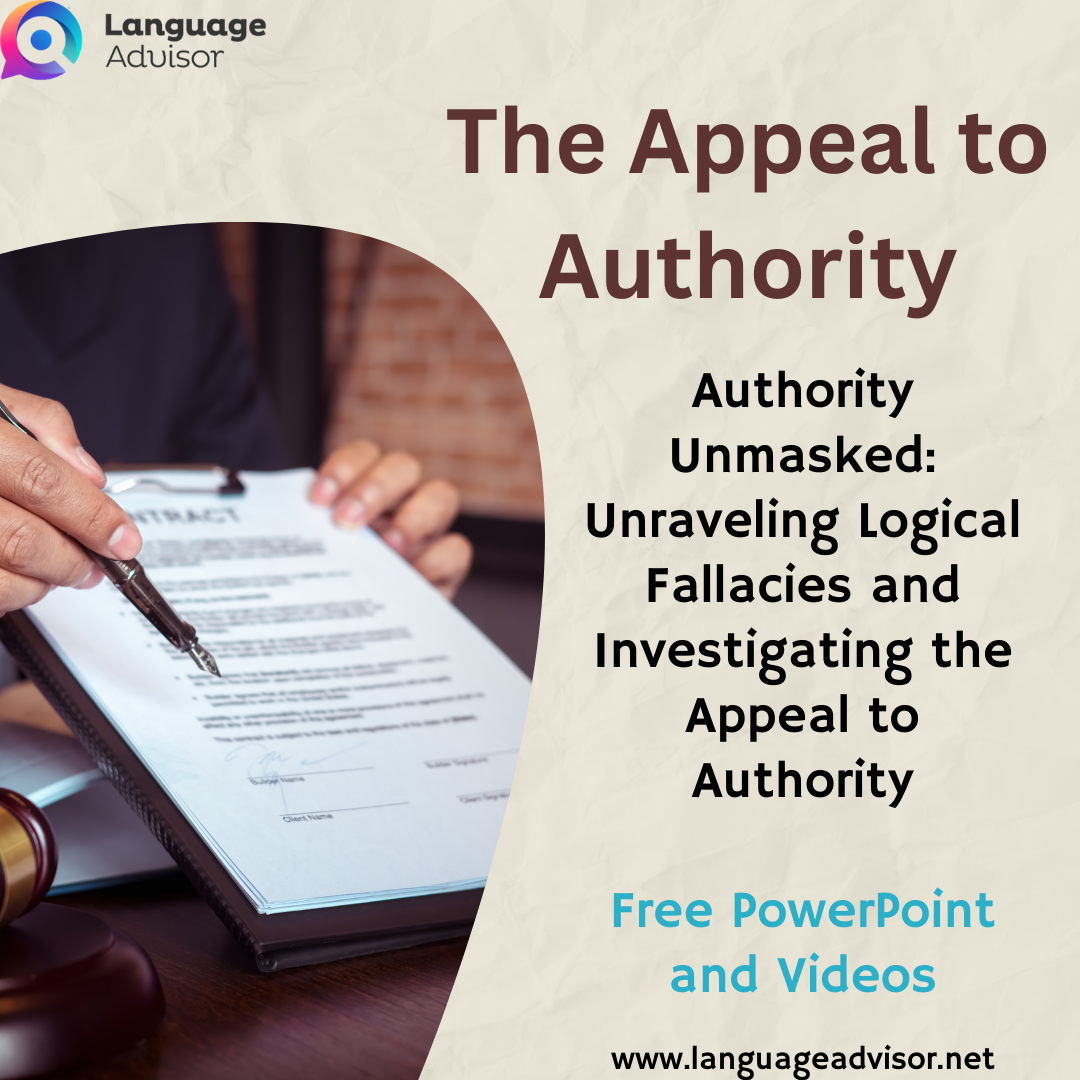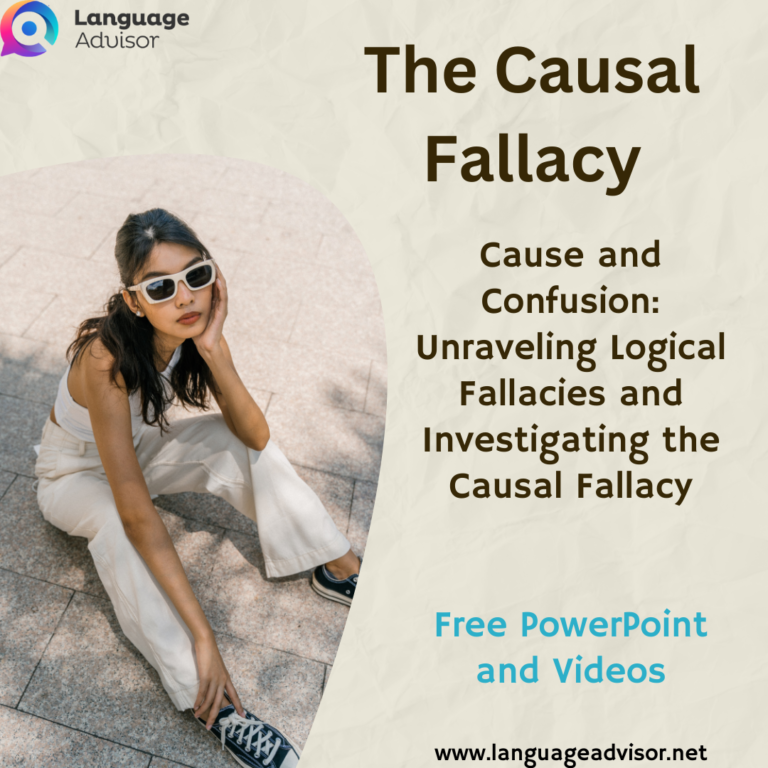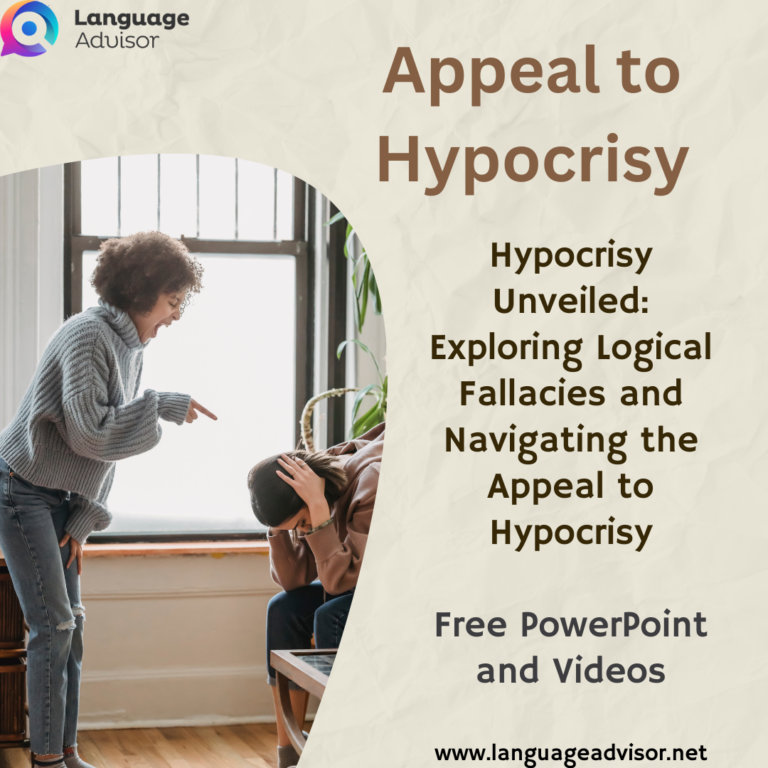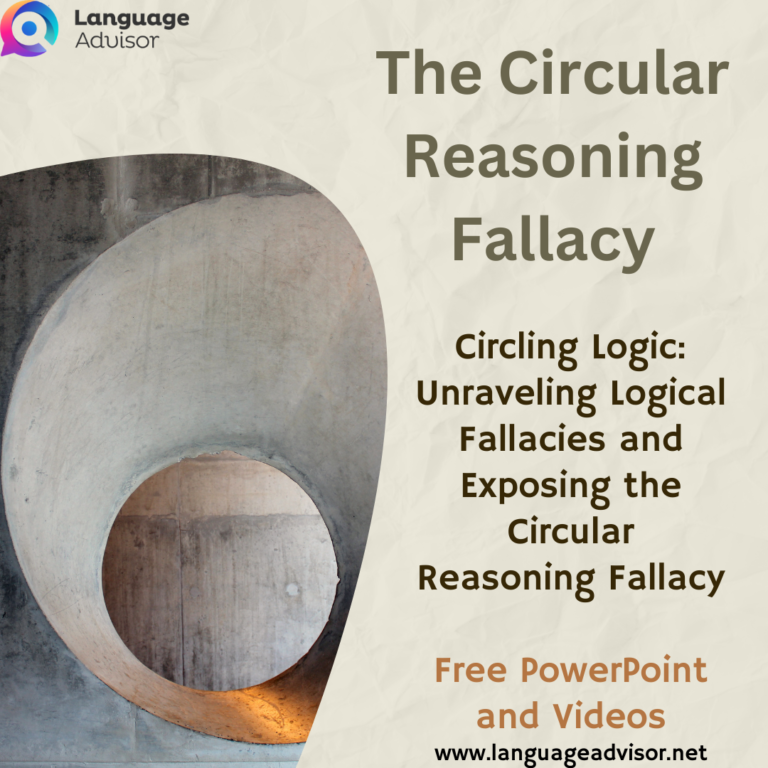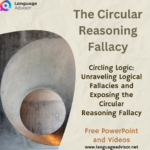Authority Unmasked: Unraveling Logical Fallacies and Investigating the Appeal to Authority. Free PowerPoint and Videos
Authority Unmasked: Unraveling Logical Fallacies and Investigating the Appeal to Authority

Authority Unmasked: Unraveling Logical Fallacies and Investigating the Appeal to Authority
What are logical fallacies?
Logical fallacies are like landmines; easy to overlook until you find them the hard way.
One of the most important components of learning in college is academic discourse, which requires argumentation and debate. Argumentation and debate inevitably lend themselves to flawed reasoning and rhetorical errors. Many of these errors are considered logical fallacies. Logical fallacies are commonplace in the classroom, in formal televised debates, and perhaps most rampantly, on any number of internet forums.
But what is a logical fallacy? And just as important, how can you avoid making logical fallacies yourself? Whether you’re in college, or preparing to go to college; whether you’re on campus or in an online bachelor’s degree program, it pays to know your logical fallacies. This article lays out some of the most common logical fallacies you might encounter, and that you should be aware of in your own discourse and debate.
A logical fallacy is an error in reasoning common enough to warrant a fancy name. Knowing how to spot and identify fallacies is a priceless skill. It can save you time, money, and personal dignity. There are two major categories of logical fallacies, which in turn break down into a wide range of types of fallacies, each with their own unique ways of trying to trick you into agreement.





A Formal Fallacy
A breakdown in how you say something. The ideas are somehow sequenced incorrectly. Their form is wrong, rendering the argument as noise and nonsense.
An Informal Fallacy
Denotes an error in what you are saying, that is, the content of your argument. The ideas might be arranged correctly, but something you said isn’t quite right. The content is wrong or off-kilter.





The Appeal to Authority


This fallacy happens when we misuse an authority. This misuse of authority can occur in a number of ways. We can cite only authorities — steering conveniently away from other testable and concrete evidence as if expert opinion is always correct. Or we can cite irrelevant authorities, poor authorities, or false authorities.
Like many of the other fallacies in this list, the argumentum ad verecundiam (“argument from respect”) can be hard to spot. It’s tough to see, sometimes, because it is normally a good, responsible move to cite relevant authorities supporting your claim. It can’t hurt. But if all you have are authorities, and everyone just has to “take their word for it” without any other evidence to show that those authorities are correct, then you have a problem.
Often this fallacy refers to irrelevant authorities — like citing a foot doctor when trying to prove something about psychiatry; their expertise is in an irrelevant field. When citing authorities to make your case, you need to cite relevant authorities, but you also need to represent them correctly, and make sure their authority is legitimate.
Suppose someone says, “I buy Hanes™ underwear because Michael Jordan says it’s the best.” Michael Jordan may be a spokesperson, but that doesn’t make him a relevant authority when it comes to underwear. This is a fallacy of irrelevant authority.
Now consider this logical leap: “four out of five dentists agree that brushing your teeth makes your life meaningful.” Dentists generally have expert knowledge about dental hygiene, but they aren’t qualified to draw far-reaching conclusions about its existential meaningfulness. This is a fallacy of misused authority. For all we know, their beliefs about the “meaning of life” are just opinions, not expert advice.
Or take the assumption that, “I’m the most handsome man in the world because my mommy says so.” Now, while I might be stunningly handsome, my mom’s opinion doesn’t prove it. She’s biased. She’s practically required to tell me I’m handsome because it’s her job as a mother to see the best in me and to encourage me to be the best I can be. She’s also liable to see me through “rose-colored glasses.” And, in this case, she’s not an expert in fashion, modeling, or anything dealing in refined judgments of human beauty. She’s in no position to judge whether I’m the most handsome man in the world. Her authority there is illusory (sorry mom).










Authority Unmasked: Unraveling Logical Fallacies and Investigating the Appeal to Authority
DOWNLOAD THE POWER POINT FOR FREE
Logical Fallacies





Also check out these free resources on Critical Thinking and Logical Fallacies






